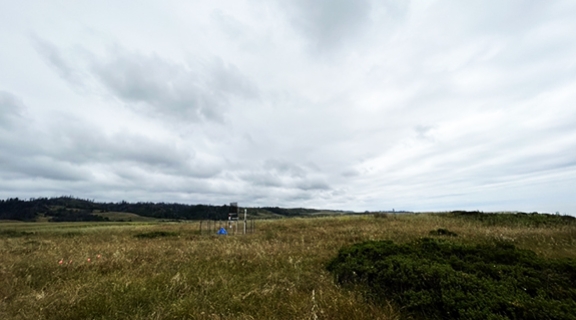
Rosenberg Institute Seminar Series - Sara Baguskas
Overview
Sara Baguskas, Terrestrial Biogeographer, Associate Professor, School of the Environment, San Francisco State University
Coastal fog matters, and here’s why
Abstract
Fog is a key ingredient to the summertime climate of coastal California. It offsets heat and water stress through shading and direct water inputs in terrestrial ecosystems. Fog events can also moderate stream temperature in sensitive riparian habitats. I will present highlights from three separate research projects that each examined a central question: how does coastal fog influence ecosystem function? The three study systems include: urban pollinator habitat, coastal streams, and a wildfire impacted grassland. Field investigations and manipulative greenhouse experiments were conducted to address research questions. In the urban pollinator habitat, we found that coastal fog buffers water stress of a plant species that is critical to the survival of a rare and threatened butterfly species in San Francisco. In the coastal streams, we found that fog events buffer stream temperature increases during heat waves in habitat that supports endangered salmonid species. In the grasslands, we found that carbon sequestration by grasslands differs between burned and unburned sites, and that coastal fog events can explain some the observed variability in carbon uptake by plants. Collectively, we learned from these studies that coastal fog does matter to the pulse of these ecosystems, but the magnitude varies in time and space and is nested in the complexity of each place.
Bio
Sara Baguskas is an Associate Professor in the School of the Environment at San Francisco State University. She is a plant ecophysiologist broadly interested in how local meteorology and climate variability impact plant function and distributions. The focus of Sara’s research is on understanding the influence of coastal fog on plant water and carbon relations in both natural and managed ecosystems. She uses a variety of research techniques, including field-based ecological approaches, controlled manipulative experiments, and spatial analyses to address research questions at multiple spatial and temporal scales.